2023 International Conference of Social Computing
Conference booklet
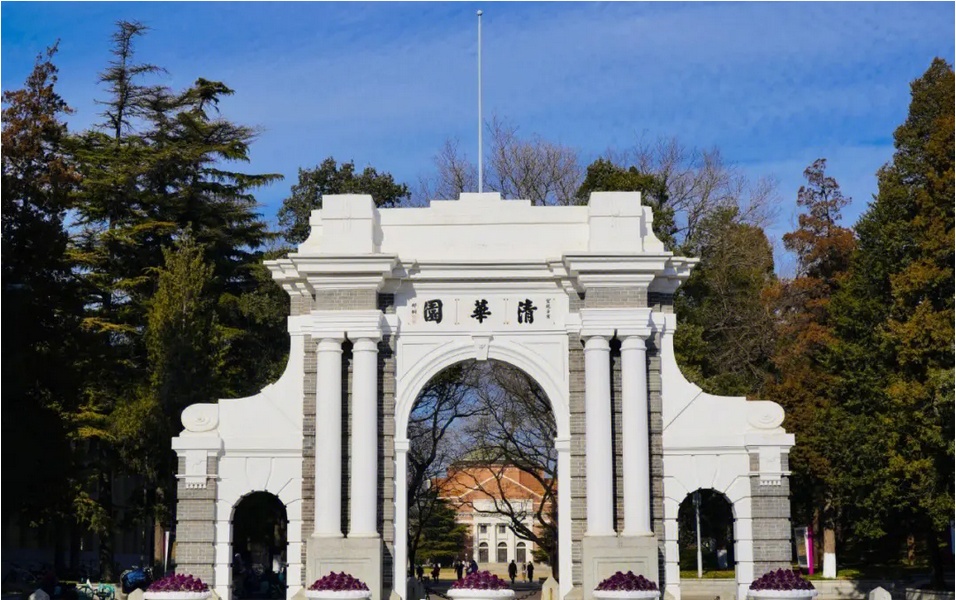
ORGANIZER
School of Social Sciences, Tsinghua University
CO-ORGANIZERS
Tsinghua University Press
Institute of Computational Social Science, Tsinghua University
Laboratory of Computational Social Science and State Governance, Tsinghua University
DATE
2023.9.2-2023.9.3
LOCATION
Conference Hall on the 2nd Floor of Beijing Tsinghua Ziguang International Exchange Center (outside the southeast gate of Tsinghua University, Haidian District, Beijing)
ONLINE MEETING LINK
Tencent Meeting: (To be updated)
Agenda
September 2
Research Presentation 1 |
|
|
|
|
Exact time |
Presenter |
Theme |
|
|
8:30-8:40 |
Lei Shi |
Opening Welcome Speech |
|
|
8:40-9:10 |
Xiaoming Fu |
Alleviating Educational Inequality in Math with the Aid of Online Shadow Education –- the impact of equal access and equal quality mechanisms |
|
|
9:10-9:40 |
Tony Tam |
The Coming Credibility Revolution in Qualitative Social Research |
|
|
9:40-10:10 |
Jon Atwell |
Wise Crowds in Organizations |
|
|
10:10-10:25 |
Tea Break |
|
|
10:25-10:55 |
Aaron Schein |
What do large language models know about political ideology? |
|
|
10:55-11:25 |
Kai Du |
Biologically detailed brain simulation and NeuroAI |
|
|
11:25-11:55 |
Yang Yue |
Modelling Urban Social Space with Spatial-temporal Data |
|
|
11:55-12:25 |
Ning Li |
Turnover Sequences and Cascades: An Intertemporal Model of Behavioral Aggregation and Acceleration |
|
|
12:25-14:00 |
Lunch |
|
|
September 2
Research Presentation 2 |
|
|
|
|
Exact time |
Presenter |
Theme |
|
|
14:00-14:30 |
James Evans |
Accelerating Social Science with Human-Aware Artificial Intelligence |
|
|
14:30-15:00 |
Yong Li |
AIGC-enabled Urban Society Simulation |
|
|
15:00-15:30 |
Ari Holtzman |
What are language models actually modeling? |
|
|
15:30-15:45 |
Tea Break |
|
|
15:45-16:15 |
Yang Chen |
EasyGraph: A Multifunctional, Cross-Platform and Effective Library for Interdisciplinary Network Analysis |
|
|
16:15-16:45 |
Tianguang Meng |
Byte the Power: Information Openness Increases Participatory Equality in China |
|
|
16:45-17:15 |
Shuai Xu |
Travel Intention Enhanced Out-of-Town Mobility Prediction for Social Network Users |
|
|
17:15-17:45 |
Huimin Chen and Zhiyuan Liu |
Ethical Risks in LLMs |
|
|
17:45-19:45 |
Welcome Dinner |
|
|
September 3
Research Presentation 3 |
|
|
|
|
Exact time |
Presenter |
Theme |
|
|
8:30-9:00 |
Michael Bernstein |
Generative Agents: Interactive Simulacra of Human Behavior |
|
|
9:00-9:30 |
Fengli Xu |
Measuring the Hidden Structure in Scientific Collaborations |
|
|
9:30-10:00 |
Yang Yu |
Robotic Governance for Sustainable Policy and Management |
|
|
10:00-10:30 |
Yunsong Chen |
Computing Grounded Theory: Algorithms-based Approach to Developing Social Theories |
|
|
End of meeting |
|
|
|
|
|
|
|
|
|

THE SCHOOL OF SOCIAL SCIENCE, TSINGHUA UNIVERSITY
Since the establishment of the Tsinghua School (Xuetang) in 1911, courses in political science and economics were offered. In 1925, the school launched its four-year undergraduate program. The Departments of sociology, political science, economics and educational psychology were among the seventeen first founded departments in 1926. In 1928, the authorities official changed the name to National Tsinghua University, and established fifteen departments in the School of Liberal Arts, the School of Science and the School of Law. The Department of Sociology was in the School of Liberal Arts; the Department of Psychology was in the School of Science; and the Departments of Political Science and Economics in the School of Law.
The study of social science at Tsinghua University has a long tradition of promoting interaction between Chinese and Western cultures and encouraging interdisciplinary communications between the Arts and the Sciences. Advocating for the application modern science methodologies in exploring political, economic and social phenomena, we learned from studies in foreign countries and followed international academic standards, with an emphasis on understanding current realistic problems in China. Founded on the ultimate goal to support the independent academic development of the nation and the construction of a new China, the school has made significant achievements in nurturing students and research.
Many world-class scholars and social activists taught or studied in Tsinghua’s social science departments, including Fei Xiaotong( Fei Hsiao-Tung) , Chen Daisun, Zhang Xiruo, Pan Guangdan, Qian Duansheng( Ch'ien Tuan-Sheng), Xiao Gongquan, Wang Tieya, Wang Yanan, Chen Da, Zhu Junyi, Wu Qiyuan, Zhao Yuanren( Chao Yuen Ren), Dai Shiguang, Xiao Qu, Wu Jingchao, Li Jinghan, Chen Tiqiang, and Tang Yue. They were pioneers of all Tsinghua faculties and students in social sciences disciplines who contributed to modern political and economical revival and social construction of China.
In 1952, a nationwide restructuring of institutes of higher education began, and Tsinghua University became a multidisciplinary polytechnic university specializing in training engineers. Social science departments in Tsinghua University were shut down and faculties and students in the field left for other universities or institutions. Since 1978, however, Tsinghua University has strengthened its teaching in the sciences, economic management, humanities and law fields. Resuscitating its studies and research in social science disciplines, the Department of Social Science was rebuilt in 1984 and School of Humanities and Social Sciences was rebuilt in 1993, which included the Department of Philosophy and Sociology, Department of Chinese Language and Literature, Department of History, the Institute of Ideology and Culture, the Institute of Science, Technology and Society, the Institute of Economics, the Institute of Education, and the Institute of Art Education. In 1997, the Institute of international studies was set up. In 2000, the Department of Sociology and Department of Political Science were reestablished. Finally, in 2008, the Department of Psychology was re-established.
In 2012, the first year after the centenary anniversary of Tsinghua University, the School of Humanities and the School of Social Sciences were founded separately on the basis of the original School of Humanities and Social Sciences. The School of Social Sciences includes the Department of Political Science, Department of International Relations, Department of Sociology, Department of Psychology, Institute of Economics. The School aims to meet the academic frontiers of the world and the strategic demands of our nation, and tries its best to attain new achievements in social sciences at Tsinghua University.

THE TSINGHUA UNIVERSITY PRESS
The International Cooperation Department of Tsinghua University Press (TUP) specializes in the press’ overseas business development and copyright trade. As one of the first Chinese publishing companies to work with overseas trade partners, TUP started its international cooperation in 1990s. Over the years, we have been actively involved in the international exchange and market competition. With the working philosophy of being “open, innovative, professional and efficient”, the International Cooperation Department works not only as the press’ window to the outside world, but also a bridge connecting to the world. Thanks to the rich resources of Tsinghua University, TUP has been highly active at the frontiers of Chinese academic and higher education publishing. By introducing thousands of high quality overseas titles to the Chinese market, TUP has promoted the international exchange in education and culture on one hand, and established strategic partnerships with many famous international publishing companies such as Pearson Education, Elsevier, John Wiley & Sons, Springer, McGraw Hill Education, Taylor Francis, etc. on the other hand.
TUP is now an experienced publisher favored by many outstanding authors and translators whose works appeal to other publishing companies for they represent the most advanced level of academic research in China. Up till now, TUP has licensed hundreds of titles to publishers in the United States of America, Germany, the United Kingdom, France, Japan, Singapore, South Korea, etc.
With the arrival of the digital era, the International Cooperation Department will take a more open and positive attitude towards international publishing. We sincerely hope to develop a closer and more in-depth cooperation with partners around the world in areas like science and technology, medicine, humanities and social sciences, business and management, children’s books, popular books, etc.

LABORATORY OF COMPUTATIONAL SOCIAL SCIENCE AND STATE GOVERNANCE, TSINGHUA UNIVERSITY
The Laboratory of Computational Social Science and State Governance at Tsinghua University (hereinafter referred to as the “Laboratory”) was approved by the Ministry of Education in December 2021 as one of the first pilot construction projects for philosophical and social science laboratories. The Laboratory serves as a comprehensive support platform and innovation base aimed at promoting the integration of humanities and engineering disciplines at Tsinghua University and is under the administration of the School of Humanities.
The guiding principles for the establishment of the Laboratory are as follows: adhering to national strategic objectives, leading at the forefront of disciplines, promoting interdisciplinary integration of arts and sciences, innovating research paradigms, and fostering the development of multidisciplinary talents. The development vision of the Laboratory is to be rooted in philosophical and social disciplines such as public administration, political science, law, economics, journalism and communication, sociology, and to integrate resources from engineering and technical disciplines such as computer science and technology, electronic science and technology, software engineering, and mathematics. The goal is to establish a research base representing national standards and a high-level talent cultivation base, and to play a demonstrative role in the construction of the Ministry of Education's philosophical and social science laboratories.
The functional orientation of the Laboratory is as follows: to establish a foundational platform based on data fusion, big data technologies, and tools, providing interdisciplinary research with foundational data and critical infrastructure for various related disciplines; to establish an innovation platform for social sciences based on data-intensive research paradigms, promoting cross-disciplinary integration of arts, sciences, and engineering, and advancing the development of philosophical and social disciplines; to build a governance simulation platform geared towards major applications and demands in the economic and social fields, utilizing digital technology to conduct innovative research such as policy deduction simulations and social experiments; to establish a teaching and experimental platform oriented towards the cultivation of multidisciplinary talents urgently needed for state governance, comprising teaching faculty, experimental teaching infrastructure, and curriculum systems.
The Laboratory comprises six thematic labs: Intelligent Decision-Making and Digital Governance Lab, Computational Political Science and Digital Government Lab, Computational Law and Legal Innovation Lab, Digital Economy and Economic Big Data Lab, Computational Communication and Intelligent Media Lab, Computational Sociology and Digital Society Lab. These thematic labs are planned and constructed in accordance with the principles of open participation, co-construction, and sharing, promoting research innovation and disciplinary development in their respective fields.

INSTITUTE OF COMPUTATIONAL SOCIAL SCIENCE, TSINGHUA UNIVERSITY
Tsinghua University, relying on its interdisciplinary advantages, occupies a leading position in the field of computational social sciences in China. In 2014, the School of Social Sciences at Tsinghua University initiated research in computational social sciences in China, forming a research team composed of interdisciplinary forces such as economics, political science, psychology, sociology, computational science, and data science. In 2017, Tsinghua University took the lead in building a computing social science platform nationwide, and carried out laboratory construction around discipline construction, research paradigms, and talent cultivation. In June 2018, the School of Social Sciences collaborated with the School of Law, School of Economics and Management, and Data Science Research Institute to apply for the construction of a school level research platform, providing massive data and computing resource support for the humanities and social sciences departments of the school. Under the leadership of Tsinghua University, computational social sciences have become an emerging interdisciplinary field that many universities focus on cultivating. More than 30 universities, including Tsinghua University and Peking University, have established research institutions in computational social sciences. In 2019, at the initiative of Tsinghua University and Peking University, more than 30 universities jointly established the “China Computing Social Sciences Alliance” to promote cross campus cooperation in scientific research, talent cultivation, and subject construction.
List of Participants
Jon Atwell |
Standford University |
Michael Bernstein |
Standford University |
Huimin Chen |
Tsinghua University |
Yang Chen |
Fudan University |
Yunsong Chen |
Nanjing University |
Kai Du |
Peking University |
James Evans |
University of Chicago |
Xiaoming Fu |
University of Gottingen |
Ari Holtzman |
University of Chicago |
Hailiang Huang* |
Shanghai University of Finance and Economics |
Ning Li |
Tsinghua University |
Yong Li |
Tsinghua University |
Zhiyuan Liu |
Tsinghua University |
Jar-Der Luo* |
Tsinghua University |
Tianguang Meng |
Tsinghua University |
Xiaofeng Meng* |
Renmin University of China |
Aaron Schein |
University of Chicago |
Tony Tam |
The Chinese University of Hong Kong |
Jie Tang* |
Tsinghua University |
Fengli Xu |
Tsinghua University |
Shuai Xu |
Nanjing University of Aeronautics and Astronautics |
Hu Yang* |
Central University of Finance and Economics |
Yang Yu |
Tsinghua University |
Yang Yue |
Shenzhen University |
*Attending only without reporting
Sort by last name
 Jon Atwell
Jon Atwell
Dr. Jon Atwell studied mathematics, economics and philosophy at the University of Wisconsin. He worked for several years before doing a PhD in Sociology at the University of Michigan. After that he was a Data Science Post Doctoral Fellow at Northwestern University. His is now an assistant professor of organizational behavior at the Stanford Graduate School of Business and an external faculty with the Northwestern Institute on Complex Systems. He is interested in the cognitive dimensions of learning, coordination and decision-making within organizations. Drawing on sociological, psychological and organizational-theory perspectives, he uses lab-based experiments, formal and agent-based modeling and the tools of natural language processing.
 Michael Bernstein
Michael Bernstein
Michael Bernstein is an Associate Professor of Computer Science at Stanford University, where he is a Bass University Fellow and STMicroelectronics Faculty Scholar. His research in human-computer interaction focuses on the design of social computing systems. This research has won best paper awards at top conferences in human-computer interaction, including CHI, CSCW, ICWSM, and UIST, and has been reported in venues such as The New York Times, Science, Wired, and The Guardian. Michael has been recognized with an Alfred P. Sloan Fellowship, UIST Lasting Impact Award, and the Patrick J. McGovern Tech for Humanity Prize. He holds a bachelor's degree in Symbolic Systems from Stanford University, as well as a master's degree and a Ph.D. in Computer Science from MIT.
 Huimin Chen
Huimin Chen
Huimin Chen is an Assistant Professor at the School of Journalism and Communication, Tsinghua University. She obtained his Ph.D. degree in 2020 from the Department of Computer Science, Tsinghua University, and subsequently conducted postdoctoral research at the School of Journalism and Communication from 2020 to 2022. Her research focuses on social computing, computational communication and natural language processing. She has published papers in international journals and conferences, including EMNLP, AAAI, IJCAI, TBD, and TKDE. She actively contributes as a member of the Youth Working Committee of the Chinese Information Processing Society and has previously served as the Local Chair of the Chinese Social Media Processing Conference.
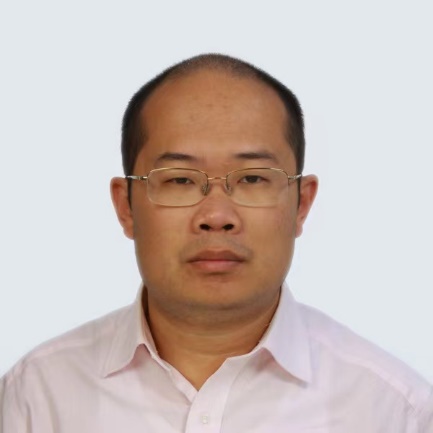 Yang Chen
Yang Chen
Yang Chen is an Associate Professor within the School of Computer Science at Fudan University, and leads the Big Data and Networking (DataNET) group at Fudan University. From April 2011 to September 2014, he was a postdoctoral associate at the Department of Computer Science, Duke University, USA, where he served as Senior Personnel in the NSF MobilityFirst project. From September 2009 to April 2011, he has been a research associate and the deputy head of Computer Networks Group, Institute of Computer Science, University of Goettingen, Germany. He received his B.S. and Ph.D. degrees from Department of Electronic Engineering, Tsinghua University in 2004 and 2009, respectively. He visited Stanford University (in 2007) and Microsoft Research Asia (2006-2008) as a visiting student. He was a Nokia Visiting Professor at Aalto University in 2019. His research interests include online social networks, Internet architecture and mobile computing. He serves as an Associate Editor-in-Chief of the Journal of Social Computing, an Associate Editor of Computer Communications, and an Editorial Board Member of the Transactions on Emerging Telecommunications Technologies (ETT). He served as an OC / TPC Member for many international conferences, including SOSP, SIGCOMM, MobiSys, WWW, IJCAI, AAAI, ECAI, DASFAA, IWQoS, ICCCN, GLOBECOM and ICC. He is a senior member of the IEEE, ACM and CCF.
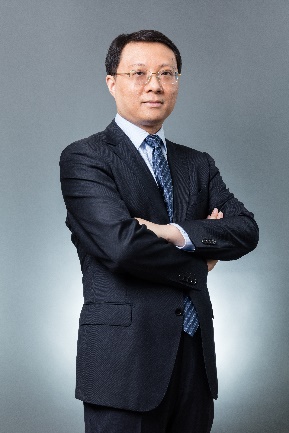 Yunsong Chen
Yunsong Chen
Yunsong Chen is a Professor of Sociology at Nanjing University. He earned his DPhil in sociology from University of Oxford, Nuffield College. From 2017 to 2020 he served as the Chinese Co-director of the Hopkins-Nanjing Center. His research interest broadly lies in digital humanities, computational social science, analytical sociology, social networks, and big data applications in sociology. His two books, Understanding China Through Big Data: Applications of Theory-oriented Quantitative Approaches (2021), and Causal Effects of Social Capital: Labor Markets and Beyond (2022), have been published by Routledge and Palgrave Macmillan. His articles appeared in peer-reviewed journals including Social Networks, Social Science and Medicine, British Journal of Sociology, Poetics, Social Science Research, and Journal of Contemporary China. He serves as editor board member and international advisory board member for several journals including Sociology, Social Science Research, Journal of Social Computing, Chinese Sociological Review, and BMC Public Health.
 Kai Du
Kai Du
Dukai, Assistant Researcher at the Institute of Artificial Intelligence, Peking University. He obtained his Bachelor's degree in Aerospace Propulsion Engineering from Beihang University in 2002. He completed his Ph.D. (2016) and postdoctoral research (2020) at the Department of Neuroscience, Karolinska Institute, Sweden. From 2013 to 2016, he was a key member of the Swedish team in the European Union's Human Brain Project “Brain Simulation Platform”.
In 2020, he joined the Institute of Artificial Intelligence at Peking University and participated in the establishment of the Life Simulation Department at the Beijing Smart Source Artificial Intelligence Research Institute. As an independent corresponding author and first author, he has published major achievements in top international journals such as Nat. Commun. and PNAS. His primary research interests include brain fine simulation, dendritic computation, and novel artificial intelligence systems and theories based on detailed brain models
 James Evans
James Evans
My research focuses on the collective system of thinking and knowing, ranging from the distribution of attention and intuition, the origin of ideas and shared habits of reasoning to processes of agreement (and dispute), accumulation of certainty (and doubt), and the texture—novelty, ambiguity, topology—of understanding. I am especially interested in innovation—how new ideas and practices emerge—and the role that social and technical institutions (e.g., the Internet, markets, collaborations) play in collective cognition and discovery. Much of my work has focused on areas of modern science and technology, but I am also interested in other domains of knowledge—news, law, religion, gossip, hunches, machine and historical modes of thinking and knowing. I support the creation of novel observatories for human understanding and action through crowd sourcing, information extraction from text and images, and the use of distributed sensors (e.g., RFID tags, cell phones). I use machine learning, generative modeling, social and semantic network representations to explore knowledge processes, scale up interpretive and field-methods, and create alternatives to current discovery regimes. My research has been supported by the National Science Foundation, the National Institutes of Health, the Air Force office of Science Research, and many philanthropic sources, and has been published in Nature, Science, Proceedings of the National Academy of Science, American Journal of Sociology, American Sociological Review, Social Studies of Science, Research Policy, Critical Theory, Administrative Science Quarterly, and other outlets. My work has been featured in the Economist, Atlantic Monthly, Wired, NPR, BBC, El País, CNN, Le Monde, and many other outlets.
At Chicago, I am Director of Knowledge Lab, which has collaborative, granting and employment opportunities, as well as ongoing seminars. I also founded and now direct on the Computational Social Science program at Chicago, and sponsor an associated Computational Information of Participants Social Science workshop. I teach courses in augmented intelligence, the history of modern science, science studies, computational content analysis, and Internet and Society. Before Chicago, I received my doctorate in sociology from Stanford University, served as a research associate in the Negotiation, Organizations, and Markets group at Harvard Business School, started a private high school focused on project-based arts education, and completed a B. A. in Anthropology at Brigham Young University.
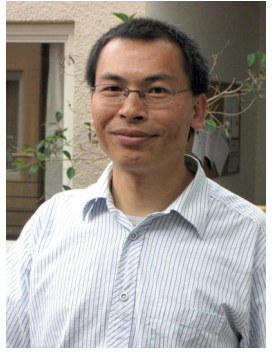 Xiaoming Fu
Xiaoming Fu
Xiaoming Fu received his Ph.D. from Tsinghua University and is currently Professor of Computer Science at University of Göttingen, Germany. He is interested in networked systems and services, cloud computing, mobile computing, big data and social networks. He has served on several journal editorial boards (e.g., IEEE Transactions on Network Science and Engineering, IEEE Transactions on Network and Service Management, IEEE Communications Magazine, Elsevier Computer Communications) and conference committees (e.g., SIGCOMM, MobiCom, CoNEXT, INFOCOM, ICNP, COSN), and as elected officers of IEEE Communications Society Technical Committees on Computer Communications (TCCC) and Internet (ITC). He is a fellow of Institution of Engineering and Technology (IET) and Academia Europaea (The Academy of Europe), an IEEE Senior Member and IEEE Distinguished Lecturer.
 Ari Holtzman
Ari Holtzman
Ari Holtzman is an incoming Assistant Professor at the University of Chicago Department of Computer Science and Data Science Institute, starting in 2024. He is currently a postdoc at Meta, investigating the integration of large language models (LLMs) into video game engines. He completed his PhD in Computer Science at the University of Washington. His research has focused broadly on generative models of text: how we can use them and how can we understand them better. His research interests have spanned everything from dialogue, including winning the first Amazon Alexa Prize in 2017, to fundamental research on text generation, such as proposing Nucleus Sampling, a decoding algorithm used broadly in deployed systems such as the OpenAI API. With the new wave of powerful generative models being continually released, Ari has argued for using the lens of Complex Systems to understand generative models of human media, suggesting that a lack of precise behavioral vocabulary to describe *what* language models are doing is the bottleneck to explaining *how* language models are capable of such impressive performance on a range of tasks.
 Hailiang Huang
Hailiang Huang
Hailiang Huang is a professor at Shanghai University of Finance and Economics, serving as the Dean of the School of Information Management and Engineering. He is a doctoral supervisor and is primarily engaged in research related to big data and artificial intelligence methods, along with their applications in areas such as economics, society, governance, and health management. He has led over 10 national and provincial-level projects and has undertaken more than 20 research projects in the field of big data from government commissions like the Ministry of Finance and the Shanghai Municipal Statistics Bureau, as well as from large enterprises like Alibaba, China Telecom, SAIC Motor, Baosteel, China Merchants Bank, and Guotai Junan Securities. These research projects cover various domains including government governance, finance, marketing, and e-commerce, involving big data analysis and decision support.
He has published over 50 papers in top-tier academic journals such as the Journal of Management Information Systems, IEEE Transactions on Dependable and Secure Computing, Decision Support Systems, Knowledge Based Systems, and the Journal of Management Science in China, as well as in internationally renowned conferences like NeurIPS, KDD and AAAI. He has received awards including the Baosteel Outstanding Teacher Award, the Second Prize of Shanghai Social Science Achievement Award, and the First Prize of Shanghai Teaching Achievement Award.
 Ning Li
Ning Li
Ning Li is the Flextronics Chair Professor and the head of the Leadership and Organization Management Department at Tsinghua University. Before this, he was a Professor and Research Fellow in the Management and Entrepreneurship Department at the Tippie College of Business, The University of Iowa. He earned his bachelor’s degree in management from Shanghai Jiao Tong University and his Ph.D. from Texas A&M University. His research focuses on big data in management, organizational network analysis, team collaboration and leadership, and proactive behavior in organizations. His work is frequently published in leading management and psychology journals. Currently, he is an Associate Editor of the Journal of Management, and a Deputy Editor of the Management and Organization Review. In 2020, he was honored with the Distinguished Early Career Contributions-Science Award from the Society for Industrial and Organizational Psychology (SIOP).
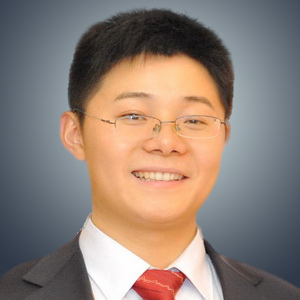 Yong Li
Yong Li
Dr. Li (http://fi.ee.tsinghua.edu.cn/~liyong/) is currently a Tenured Associate Professor of the Department of Electronic Engineering, Tsinghua University. He received the Ph.D. degree in electronic engineering from Tsinghua University in 2012. His research interests include city science and urban computing. Dr. Li has served as General Chair, TPC Chair, SPC/TPC Member for several international workshops and conferences, and he is on the editorial board of two IEEE journals. He has published over 100 papers on first-tier international conferences and journals, including Nature Human Behavior, Nature Computational Science, KDD, NeurIPS,WWW, UbiComp, and his papers have total citations more than 19000. Among them, five receive conference Best Paper (run-up) Awards.
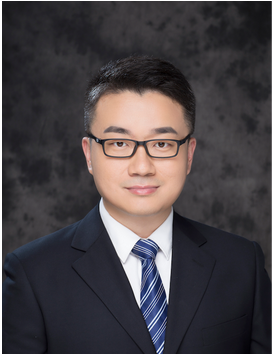 Zhiyuan Liu
Zhiyuan Liu
Zhiyuan Liu is an associate professor at the Department of Computer Science and Technology, Tsinghua University. He received his Ph.D. degree in Computer Science from Tsinghua in 2011. His research interests include natural language processing and large-scale pre-trained models, and has published more than 200 papers in top-tier conferences and journals of AI and NLP including ACL, EMNLP, IJCAI and AAAI with 33,000+ citations according to Google Scholar. He is the recipient of the Excellent Doctoral Dissertation of Tsinghua University, the Excellent Doctoral Dissertation of CAAI (Chinese Association for Artificial Intelligence), Outstanding Post-Doctoral Fellow in Tsinghua University, MIT Technology Review Innovators Under 35 China (MIT TR-35 China), BAAI Young Scientist. He serves as Associate Editor of AI Open, Track/Area Chairs of ACL, EMNLP, WWW, CIKM, COLING, etc.
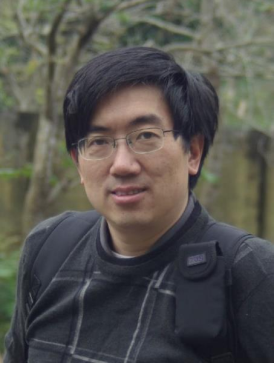 Jar-Der Luo
Jar-Der Luo
Luo, Jar-Der is a Joint Appointed Professor, Social Science School and Public Administration School, Tsinghua University (Beijing), Chief Editor, Journal of Social Computing, and PI, Tsinghua U. Computational Social Sciences & National Governance Lab, Social Sec. He earned his Ph.D degree in Sociology Dept. of State U. of New York at Stony Brook, and his email address is jdluo@mail.tsinghua.edu.cn. He researches numerous topics in social network studies, including social capital, trust, social network in big data, network dynamics, self-organization process and Chinese indigenous management researches, such as guanxi, guanxi circle, favor exchange, mutual reinforcement and constraint between Yin and Yang, and dynamic balance theory.
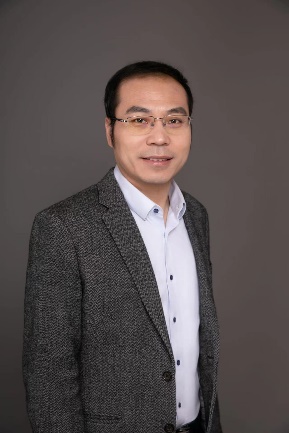 Tianguang Meng
Tianguang Meng
Tianguang Meng is the Vice Dean of the School of Social Sciences at Tsinghua University, a tenured professor, and a doctoral supervisor. His research areas include information politics and digital governance, intelligent social governance, and computational social science. He also serves as the Vice President of the Youth Working Committee of the Chinese Political Science Association, the Deputy Director of the Laboratory of Computational Social Science and State Governance at Tsinghua University, and the Executive Director of the Data Governance Research Center at Tsinghua University. He has been selected as a Young Changjiang Scholar by the Ministry of Education. He has led major projects funded by the National Social Science Fund, published three academic monographs, and authored over 80 articles in well-known domestic and international academic journals such as “Political Studies” and “Comparative Political Studies”. He has received numerous academic awards and honors.
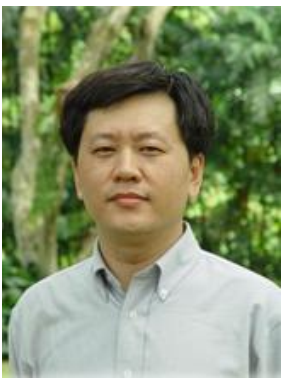 Xiaofeng Meng
Xiaofeng Meng
Xiaofeng Meng is a full professor at School of Information, Renmin University of China. He is the CCF Fellow, the vice chair of the Special Interesting Group on Privacy of China Confidentiality Association (CCA). He has served on the program committee of international conferences such as SIGMOD, ICDE, CIKM, MDM, DASFAA etc., the steering committee chair of National Conference on Big Data and Social Computing (BDSC).
His research interests include Web data management, Cloud data management, mobile data management, privacy protection, and social computing. He has published over 200 papers in refereed international journals and conference proceedings including IEEE TKDE, VLDJ, VLDB, SIGMOD, ICDE, EDBT, ACM GIS etc. He co-authored the books “Moving Objects Management:” published by Springer and Tsinghua Press.
Has received CCF “Wang Xuan Award”. He implemented relational database system COBASE, embedded mobile database system “Xiaojinling”, Chinese natural language query system NChiql, parallel database system PBASE/1, Native XML database system OrientX, cloud-base database system TaijiDB, and academic search system ScholarSpace(C-DBLP), etc.
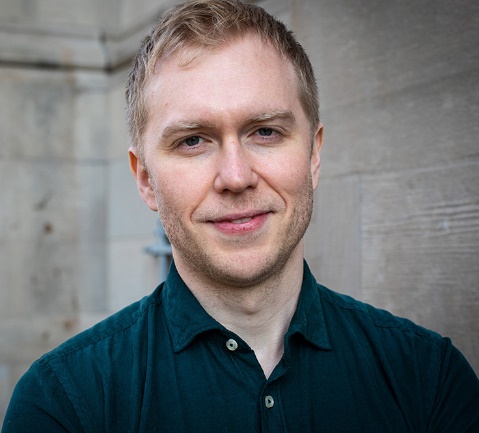 Aaron Schein
Aaron Schein
Aaron Schein is an Assistant Professor at the University of Chicago in the Department of Statistics and the Data Science Institute. His research develops methodology in Bayesian statistics, machine learning, and applied causal inference for incorporating modern large-scale data into the social sciences. Prior to joining the University of Chicago, Aaron was a postdoctoral fellow in the Data Science Institute at Columbia University, where he worked with David Blei and Donald Green on digital field experiments to assess the causal effects of friend-to-friend organizing on voter turnout in US elections. Aaron received his PhD in Computer Science in 2019 from UMass Amherst under the guidance of Hanna Wallach. His dissertation developed tensor factorization and dynamical systems models for analyzing large-scale dyadic data of country-to-country interactions. During his PhD, Aaron interned at Microsoft Research, Google, and the MITRE Corporation. Prior to that, he earned his MA in Linguistics and BA in Political Science from UMass Amherst. He is on Twitter @AaronSchein.
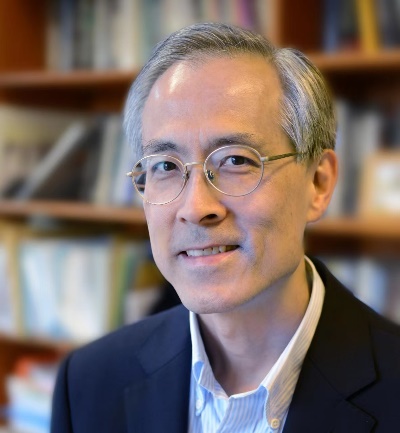 Tony Tam
Tony Tam
Tony Tam is Research Professor and Department Chair of Sociology, Director and Founding Co-director of the Computational Social Science Lab at The Chinese University of Hong Kong. He obtained his Ph.D. in sociology from the University of Chicago under the mentorship of James S. Coleman and Edward O. Laumann in 1990. He was an Assistant Professor of Sociology at Harvard University until joining Academia Sinica in 1995. He was a winner of the Distinguished Scholarly Contribution Award from the National Research Council and the prestigious Academia Sinica Publication Award for Young Researchers. His research areas include social stratification, education, labor market, health inequality, and economic sociology. Methodologically, his projects exploit strategic extensions of traditional household surveys, large online surveys, large online behavioral experiments, large biosocial surveys, and behavioral game measurements of fundamental social preferences. He also conducts comparative research on the United States, Europe, and Chinese societies. His publications have appeared in top sociology journals (such as American Journal of Sociology, American Sociological Review, Sociology of Education), interdisciplinary science journals (such as Nature Human Behavior), and top public health journals (such as The Lancet Planetary Health, International Journal of Epidemiology, Environmental Health Perspectives, Occupational and Environmental Medicine, Journal of clinical sleep medicine, Sleep). He has served on the editorial board of major sociology journals, including American Journal of Sociology and Sociology of Education.
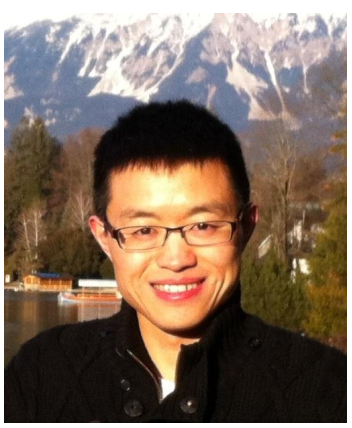 Jie Tang
Jie Tang
Professor Tang’s interests include social network analysis, data mining, and machine learning. He has published more than 200 journal/conference papers and holds 20 patents. His papers have been cited more than 6,000 times (Google Scholar). He has been a visiting scholar at Cornell University, served as PC Co-Chair of CIKM’16, WSDM’15, ASONAM’15, Soclnfo’12, KDD-CUP/Poster/Workshop/ Local/Publication Co-Chair of KDD’11-15, and Associate Editor-in-Chief of ACM TKDD, Editors of IEEE TKDE/TBD and ACM TIST. He leads the project AMiner.org for academic social network analysis and mining, which has attracted more than 8 million independent IP accesses from 220 countries/ regions in the world. He was honored with the Newton Advanced Scholarship Award, CCF Young Scientist Award, and NSFC Excellent Young Scholar.
 Fengli Xu
Fengli Xu
Dr. Fengli Xu received his Ph. D. degrees in Electronic Engineering from Tsinghua University in 2020. During 2020 and 2023, he was a postdoc researcher at the University of Chicago. Currently, he is an assistant professor at Tsinghua University. His research interests lie in the interdisciplinary area of Computational Social Science, Data Science and Complexity Science, aiming to develop scientific methods and artificial intelligence tools to address the long-standing puzzles in complex networks arise from human behavior and social interactions. His research aims to fully exploit the opportunities offered by recent data explosion and push forward the boundary of computational social science research with novel Data Science/AI techniques. Dr. Xu published several first author paper in high-profile journals, including PNAS, Nature Human Behaviour and Nature Computational Science and 30+ top computer science conferences, e.g., NeurIPS, WWW, KDD, etc. His research was recognized by selective academic awards, including CAAI rising star in social computing, MSRA Fellowship, ACM Sigspatial China Doctoral Dissertation Award, Ubicomp’16 Honorable Mention Award. Dr. Xu has served as the (senior) PC Member of several international conferences, including WWW, AAAI, WSDM and IJCAI and co-organize IC2S2 2022 as Datathon director.
 Shuai Xu
Shuai Xu
Shuai Xu received the bachelor’s degree in computer science from Northeastern University in 2014, and the Ph.D. degree in computer science from Southeast University in 2020, respectively.
He is currently a Lecturer at the College of Computer Science and Technology, Nanjing University of Aeronautics and Astronautics (NUAA), Nanjing, China. From November 2018 to May 2020, he visited the University of Göttingen, Göttingen, Germany, where he was a Research Assistant, hosted by Prof. Xiaoming Fu (Fellow, IEEE). His research focuses on temporal-spatial data mining and social network analysis. He has authored more than 20 articles and most of them have been published in reputed journals and conferences, including IEEE TCSS, IPM, WWWJ, CIKM, DASFAA and so on. He has been granted five invention patents and awarded the ACM Nanjing Branch 2021 Excellent Doctoral Award, the 2022 CAAI "New Star of Social Computing Young Scholars", and the Best Student Paper of the APWeb-WAIM 2022. He is currently funded by the National Natural Science Foundation of China (NSFC) and the Natural Science Foundation of Jiangsu Province.
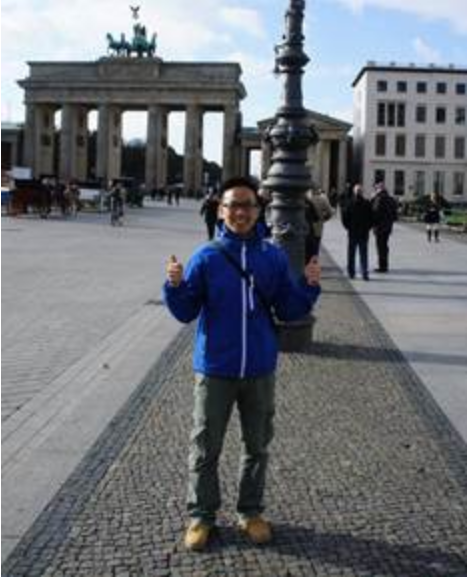 Hu Yang
Hu Yang
Hu Yang (1983-), an associate professor, received his B.Eng degree in 2005 from the Dalian Maritime University, Dalian, Liaoning; his M.Eng degree in 2007 from the National University of Defense Technology, Changsha, Hunan; his Ph.D. degree in 2014 from the Renmin University of China, Beijing. He has been a visiting scholar at Aarhus University in Denmark, the University of Minnesota in the United States and Hokkaido University in Japan. He is currently working at the School of Information, Central University of Finances and Economics. His research projects include big data analysis, social computing, social networks analysis and biostatistics. He has published some academic papers in well-known journals, such as “Decision Support Systems”, “Statistics in Medicine”, “Information Processing & Management” and so on. He serves as an associate editor of the Journal of Social computing and reviewer of many journals and international conferences.
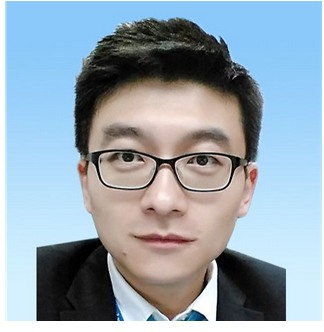 Yang Yu
Yang Yu
Yang Yu graduated from Stanford University in June 2016 with a doctoral degree. He is currently the Director of the Artificial Intelligence International Academic Exchange Program at the Institute of Artificial Intelligence International Governance at Tsinghua University, and an Assistant Professor at the Institute of Cross Information at Tsinghua University. The main research directions include algorithmic economy, computational energy economics, computational ecology and environmental management, big data analysis of energy environment and ecology, and optimization operations research. Multiple academic papers formed through related research, and twice won the IEEE PESGM Best Paper Award.
 Yang Yue
Yang Yue
Dr. Yang Yue is a professor of urban informatics and Head of the Department of Urban Informatics at Shenzhen University, where she also directs the Shenzhen Key Laboratory of Spatial Smart Sensing and Services. She got her degrees from The University of Hong Kong (Ph.D.) and Wuhan University (Bachelor and M.Eng.), with an interdisciplinary background in Geomatics, GIS, and urban studies. Her research interests include urban spatial-temporal modeling and sustainable development evaluation. She has led four National Science Foundation projects and is also a CO-I on three Hong Kong RCG projects, and published about 100 peer-reviewed publications, with ESI highly-cited papers. She currently serves as the associate editor of 'Computers, Environment and Urban Systems’ and the vice-chair of ACM SIGSPATIAL China Chapter.